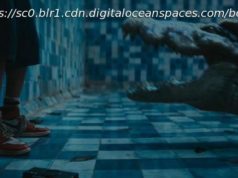It isn’t technology. It’s not a second screen. It’s not social media, or email, or smartphones or any of the things we often associate with it. But to solve it, we need to understand it.
I don’t need to convince you that distraction is a problem in today’s workplace.
But what if I told you distraction isn’t what you think it is?
We’ve all seen the stats. How multitasking makes us worse at everything. We get dumber just by having the smartphone in the same room. 90% of text messages are read within 3 minutes. We can’t even watch TV without distractions: 88% of us use a second screen. According to a new study from Adobe, we spend 3.1 hours per day at work on email, of all things.
Nobody drives anymore: we get in the car, pull out our phones, and hope . (Getty) Getty
Stats like this, however, are woefully incomplete. There’s no way we’re accomplishing 3.1 hours worth of actual goals while we’re all emailing at work, but it’s also highly unlikely that all of that time actually counts as true distraction.
This gets at a deeper truth: distraction isn’t technology. It’s not a second screen. It’s not social media or email or smartphones or any of the things we often associate with it. In reality, these things are simply ways we fill the time in which we’re already distracted.
Because distraction, at its core, is this: confusion about what matters.
This definition helps clarify a lot about the overall effects of distraction. See if any of this sounds familiar on your team:
These are signs that your team is battling an ongoing state of distraction, a confusion about what matters. Always-on connectivity leads to an increase in the volume of demands, and we naturally respond by prioritizing quantity over clarity. In short, we multitask—which is often just another form of distraction.
Your team’s work quality suffers. One study looked at the production on Harvard MBAs. When given a second, basic task to add to their workload—essentially, a distraction—their performances dropped to the level of an eight-year-old.
Your team loses time. A study at Vanderbilt about multitasking revealed a 40 percent drop in efficiency on average—up to three hours each workday. And it’s a vicious cycle: the less efficient, the more stressed, the more pressure to multitask.
Your team spends less effort. Every task we add to our virtual plate, meaningful or not, reduces the energy we have to allocate to any of them.
Your team’s creative power dwindles. Creativity relies heavily on long-term memory, and a type of zoomed-out attention that allows us to connect ideas in new ways. Constant distraction means fewer things get «saved to disk», and we spend more time zoomed-in instead. Thus, we have fewer opportunities to discover those creative connections.
Your team cannot differentiate importance. The more tasks coming at us, the less bandwidth we have to assess what actually matters. Worst of all, this directly implies that our teams spend much of their workday uncertain about their meaning and purpose.
A near-constant state of confusion about what matters results in a team of unhappy, disengaged burnouts who feel a strong need to escape… to their devices.
If distraction is confusion about what matters, the solution is not «more focus». It is entirely possible to be completely focused and thoroughly distracted—at the same time.
No, the solution is to do a better job of defining what matters to our teams. Our job as leaders is to provide the tools, training, and incentives to help our team focus on what matters most at the right time. This requires a lot of effort, communication skills, leadership, and, yes, deep focus.
The rewards, however, are immense. The competition is worrying about working faster, higher productivity, accomplishing more tasks at once. This is your chance—to quit playing the game by their rules, and instead focus on defining what matters for you and your team.
I speak worldwide about our distracted lives, and authored the Amazon bestseller Can I Have Your Attention? Inspiring Better Work Habits, Focusing Your Team, and Getting Stuff Done in the Constantly Connected Workplace. As an (older) Millennial with ADD, I am…
A free chapter of my Amazon best-selling book is available here .






